On the evening of November 9, Tsinghua University hosted the 2024 Modern Governance Forum. As part of the 2024 Global Advisory Board Meeting (GAB Meeting) series for Tsinghua University School of Public Policy and Management (Tsinghua SPPM), this forum centered on the theme “Public Governance and Global Cooperation in the Age of Intelligence.”
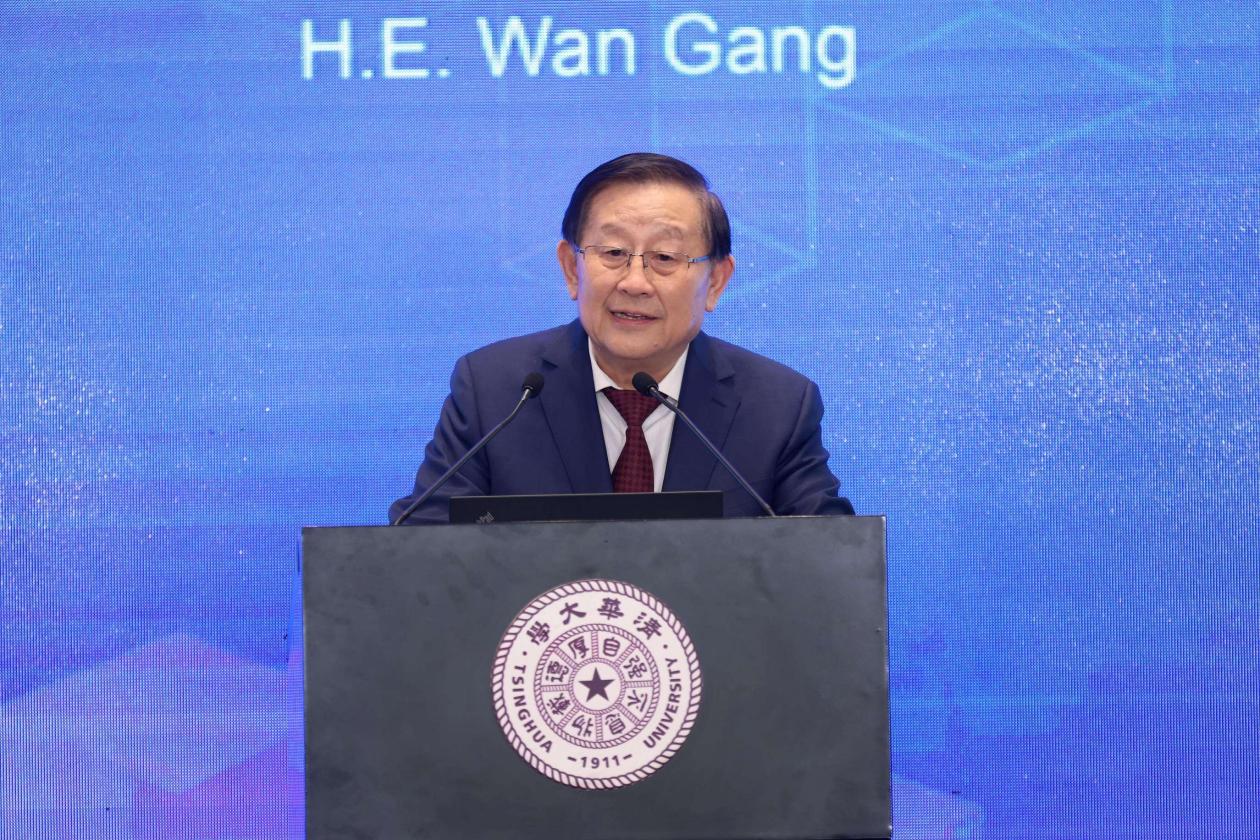
Wan Gang delivers a keynote speech
Wan Gang, president of the China Association for Science and Technology and vice-chairman of the 13th National Committee of the Chinese People’s Political Consultative Conference delivered a keynote speech at the forum. In his keynote, “AI for New Energy Vehicles,” Wan discussed the advancement of new energy vehicles (NEVs), supported by coordinated infrastructure and renewable energy growth. He highlighted that with AI, NEVs are evolving toward electrification, intelligence, low carbon, safety, and efficiency. Wan outlined the intelligent connected NEV system, emphasizing vehicle-road-cloud integration and generative AI solutions based on large driving models (LDM). He stressed that intelligent connected NEVs are key to global automotive transformation, calling for deeper collaboration to achieve a shared vision of green, low-carbon, and smart mobility.

Li Luming delivers welcome remarks
Li Luming, president of Tsinghua University and member of the Chinese Academy of Sciences, attended the opening ceremony and delivered welcome remarks. Li welcomed forum participants and expressed gratitude for the GAB’s support of the university’s public administration discipline. He noted that AI is a driving force in the latest technological and industrial transformation wave. Tsinghua has embraced an open approach to advancing AI, promoting its integration into education, and proactively addressing the risks and challenges of AI governance. Li hoped that attendees would share insights to foster consensus, contributing to Tsinghua's AI innovation, effective utilization, and sound governance, and striving to push public governance and global cooperation in the age of intelligence to a new level.
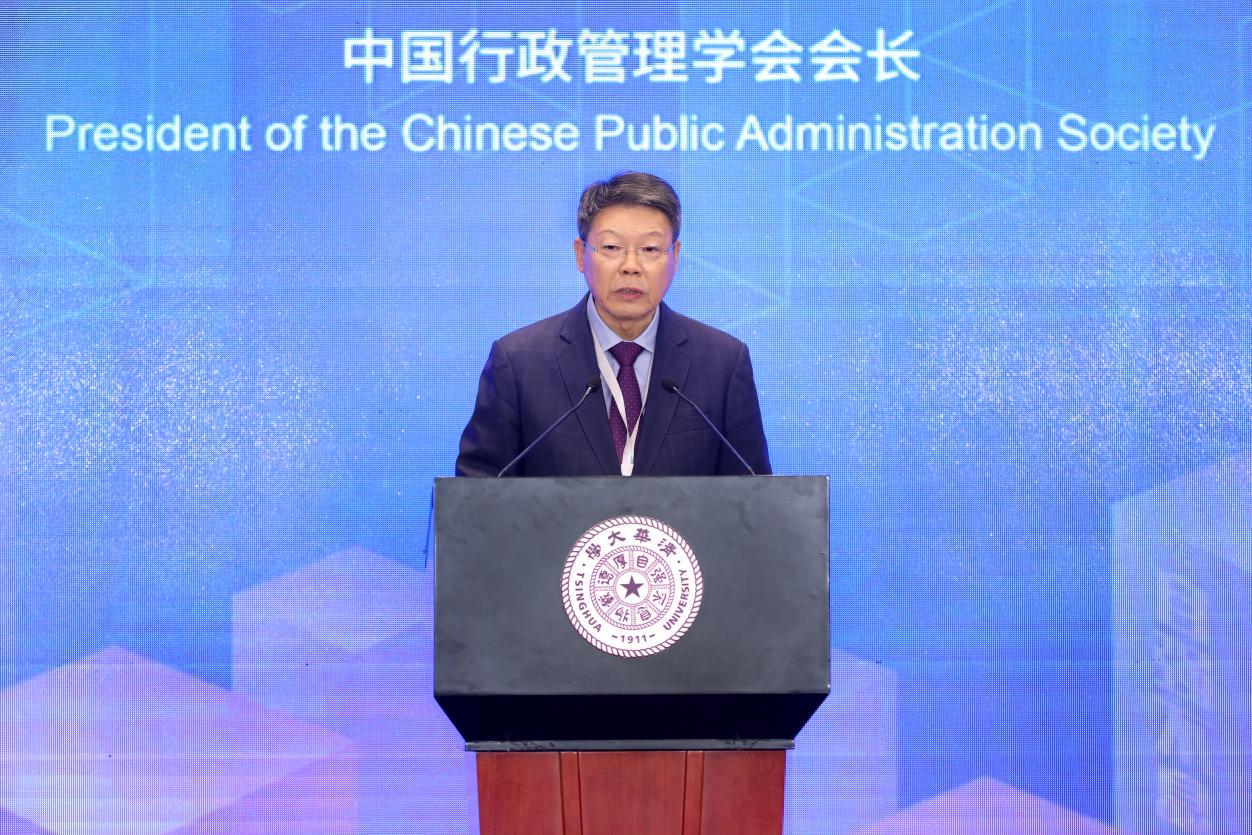
Li Baorong delivers remarks
Li Baorong, president of the Chinese Public Administration Society attended the opening ceremony and delivered remark. In his address, “Insights on National Governance from Institutional Development,” Li emphasized that institutions are central to national governance, underpinning both capacity and effectiveness. Reflecting on over 40 years of China’s institutional development, he noted that robust institutions have consistently driven economic and social progress, enhanced government effectiveness, and energized society. As AI advances, he pledged that public administration scholars would work closely with the society to advance research on public governance and global cooperation in the age of intelligence.
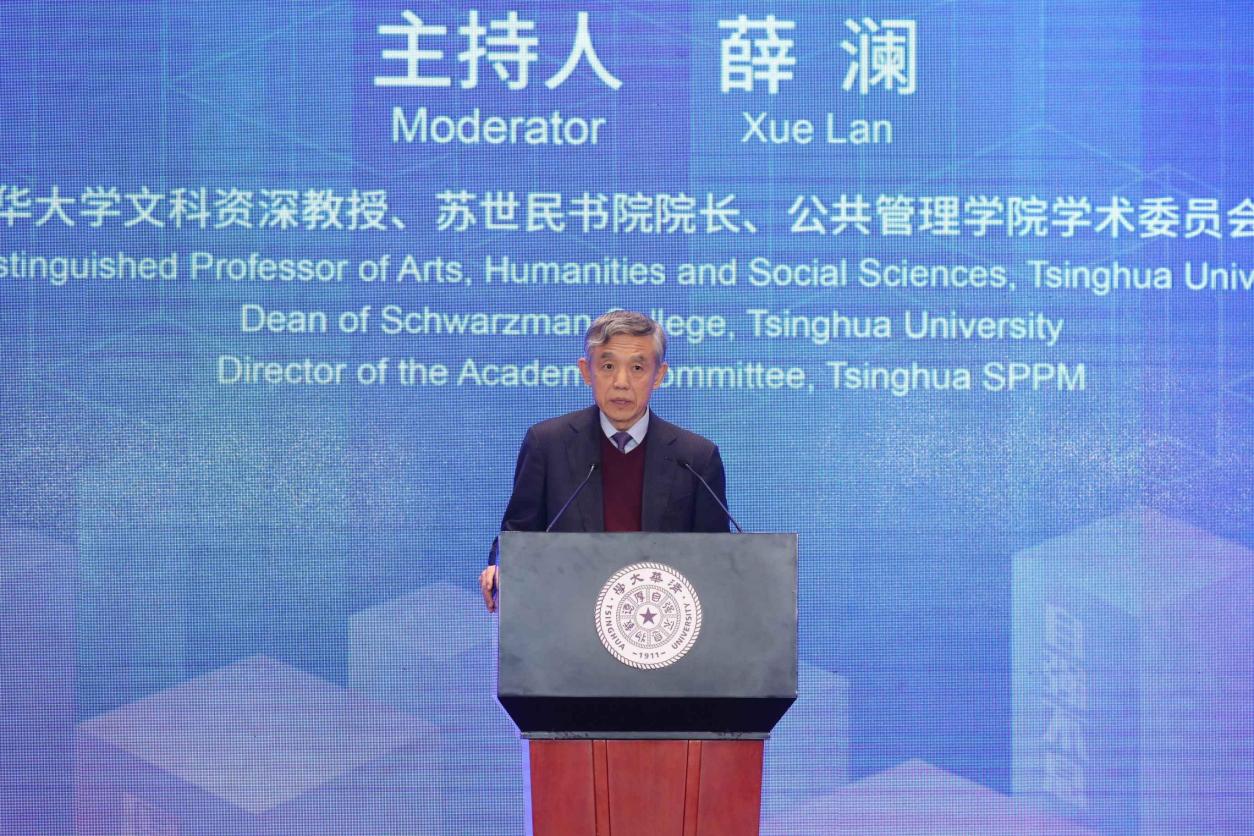
Xue Lan moderates the opening ceremony
The opening ceremony was moderated by Xue Lan, distinguished professor of Arts, Humanities, and Social Sciences at Tsinghua University.
Following the opening ceremony, two sessions addressed key themes. The first session of the forum, “Applications and Challenges of Artificial Intelligence in Public Governance,” was moderated by Peng Zongchao, professor of Tsinghua SPPM and secretary of the CPC Tsinghua SPPM Committee.
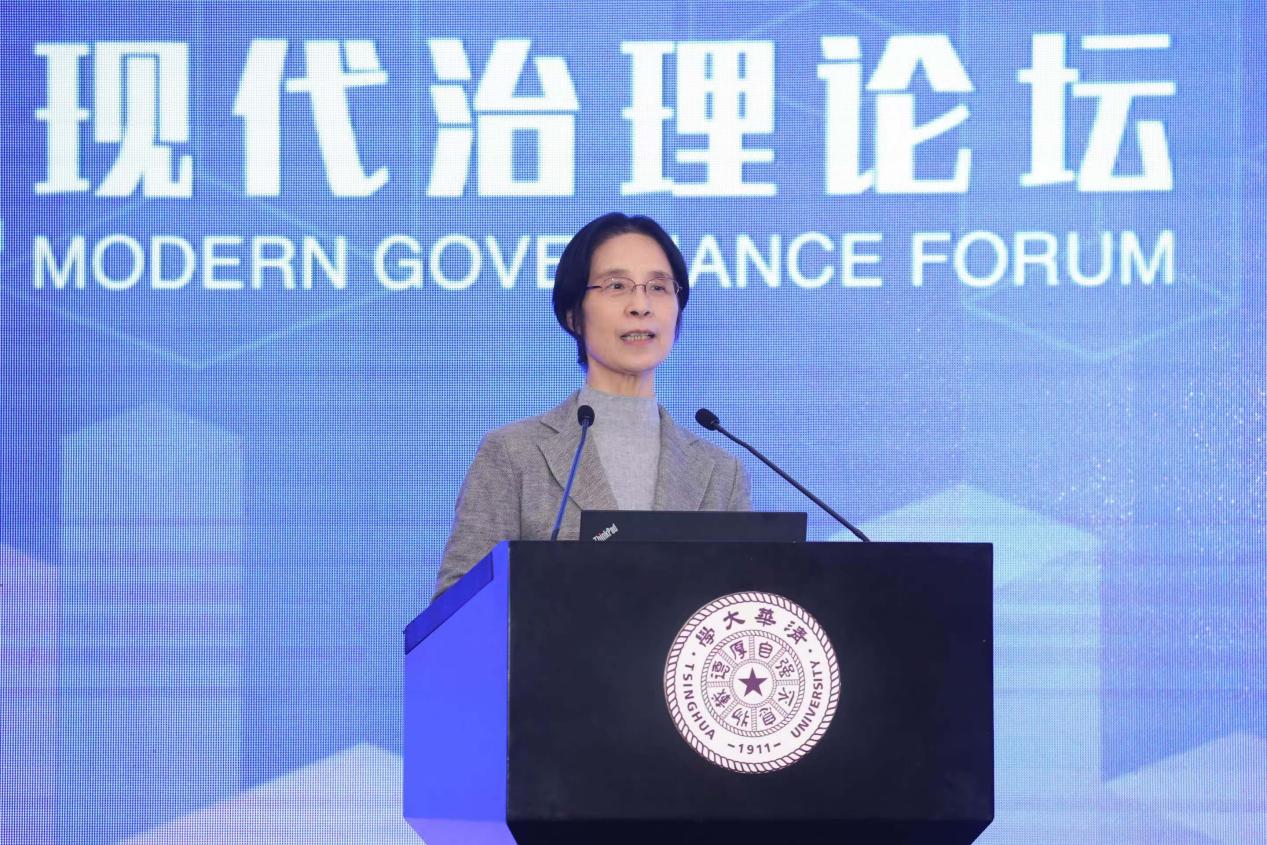
Jiang Xiaojuan delivers a keynote speech
Jiang Xiaojuan, professor of the University of Chinese Academy of Social Sciences and former deputy secretary-general of the State Council, PRC, attended the forum and presented a keynote speech. In her keynote, “Reuse of Public Data and Public Governance Efficiency in the Digital Age,” Jiang emphasized that data reusability is a key feature that can effectively drive digital and intelligent transformation across sectors. She highlighted public data’s role as a public good with vast potential for sharing, openness, and development. With the goal of enhancing data reuse efficiency, it is essential to handle the relationship between the opening, sharing, development, and utilization of public data properly. Focusing on serving the overall public interest and addressing prominent issues of inaccessible or unusable data, continuous innovation should be pursued to ensure effective reuse of public data and unleash its enormous potential.
Other esteemed speakers included Yu Jianxing, chairman of Zhejiang Gongshang University, and Danny Quah, dean of the Lee Kuan Yew School of Public Policy, National University of Singapore. These experts engaged in in-depth discussions on the potential challenges of AI and its public governance.
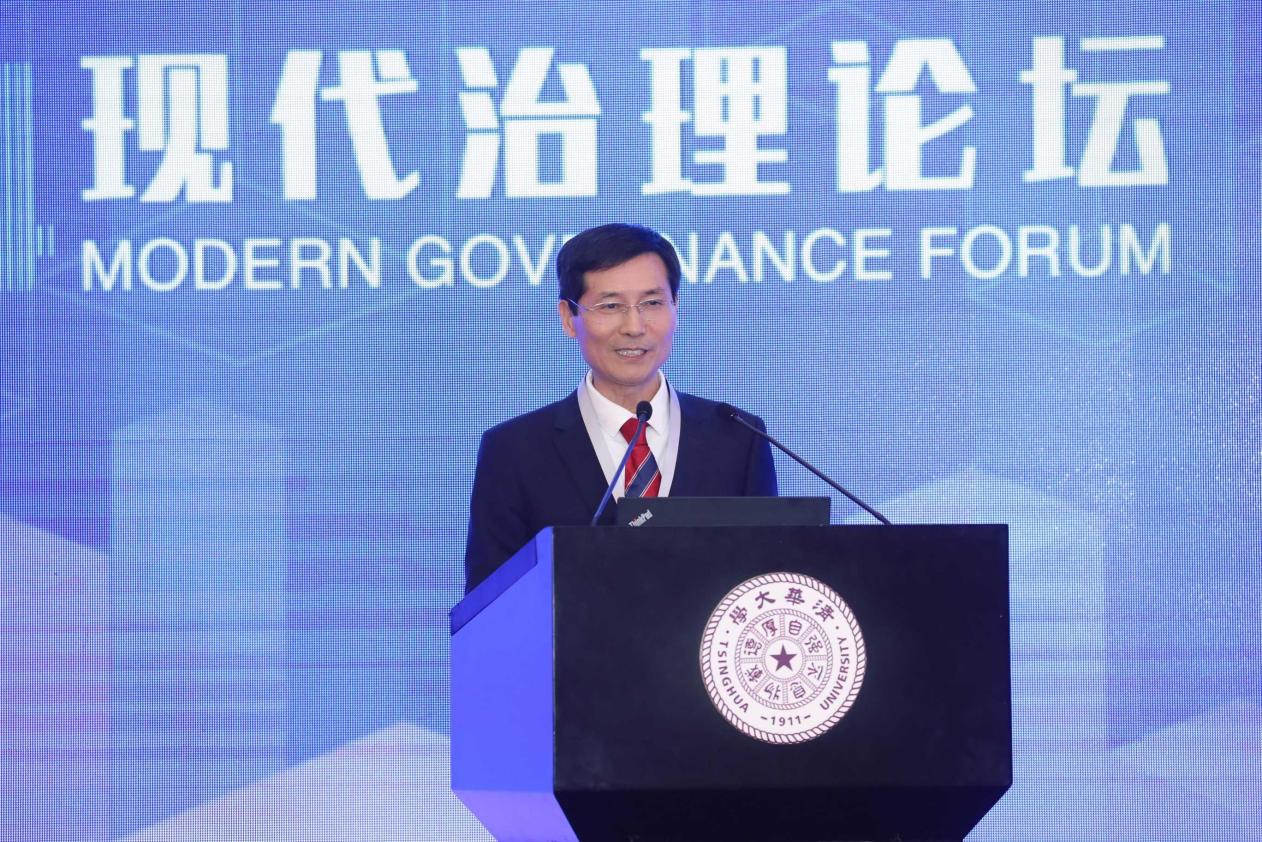
Peng Zongchao moderates the first session
The second session of the forum, “Global Governance and Cooperation in the Age of Intelligence,” was moderated by Zhu Xufeng, dean of Tsinghua SPPM.
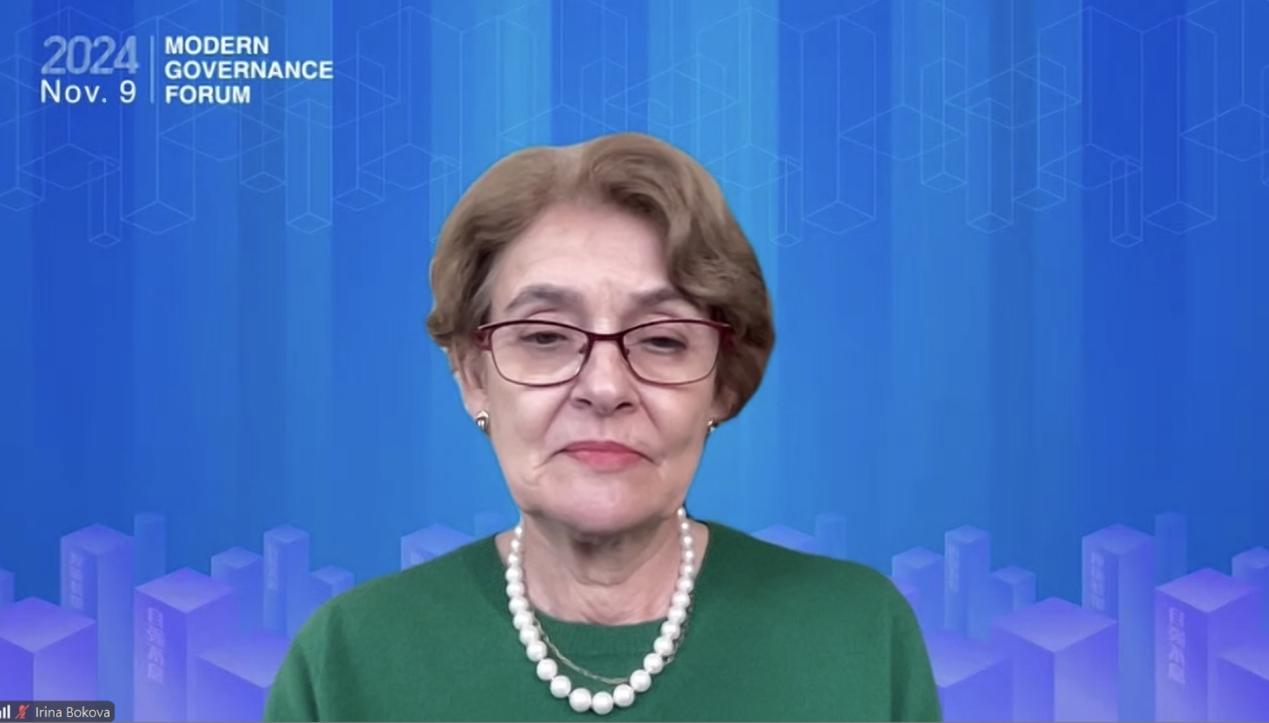
Irina Bokova delivers a keynote speech
Irina Bokova, former director-general of UNESCO attended the forum and presented a keynote speech. In her keynote, “AI and Ethics: What impact for Innovation in Education,” Bokova highlighted AI’s dual impact on employment and the need for universities to prioritize lifelong learning. She emphasized that education, a fundamental human activity rooted in social interaction, should empower young people with lifelong learning and adaptability skills. Bokova also stressed the importance of preserving linguistic diversity, as AI risks amplifying fragmentation and inequality. She called on educators and policymakers to collaborate in developing ethical frameworks to guide the design, deployment, and use of AI in education.
Prominent speakers included Tam Yiu-chung, vice president of the Chinese Association of Hong Kong & Macao Studies, Zheng Yongnian, dean and chair professor of the School of Public Policy, the Chinese University of Hong Kong, Shenzhen, and Yan Jinming, dean of the School of Public Administration and Policy, Renmin University of China. Together, they explored innovative approaches to global governance and cooperation.
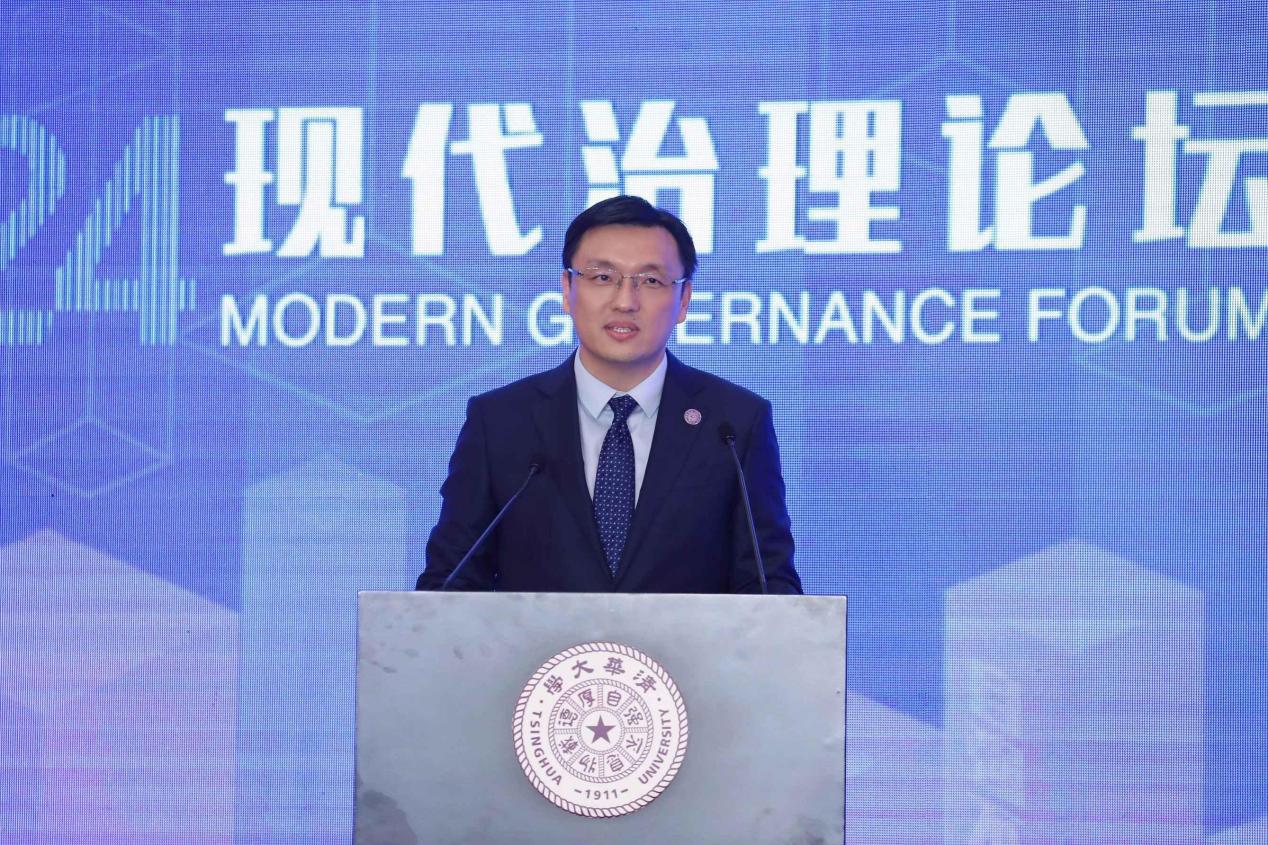
Zhu Xufeng addresses the forum
In concluding remarks, Dean Zhu Xufeng expressed appreciation for the contributions made by attending experts, scholars, and guests.
The Modern Governance Forum was supported by the Chinese Public Administration Society and organized by Tsinghua SPPM. The event aimed to advance public governance and global cooperation in the age of intelligence by fostering international exchange and providing intellectual support and policy insights.
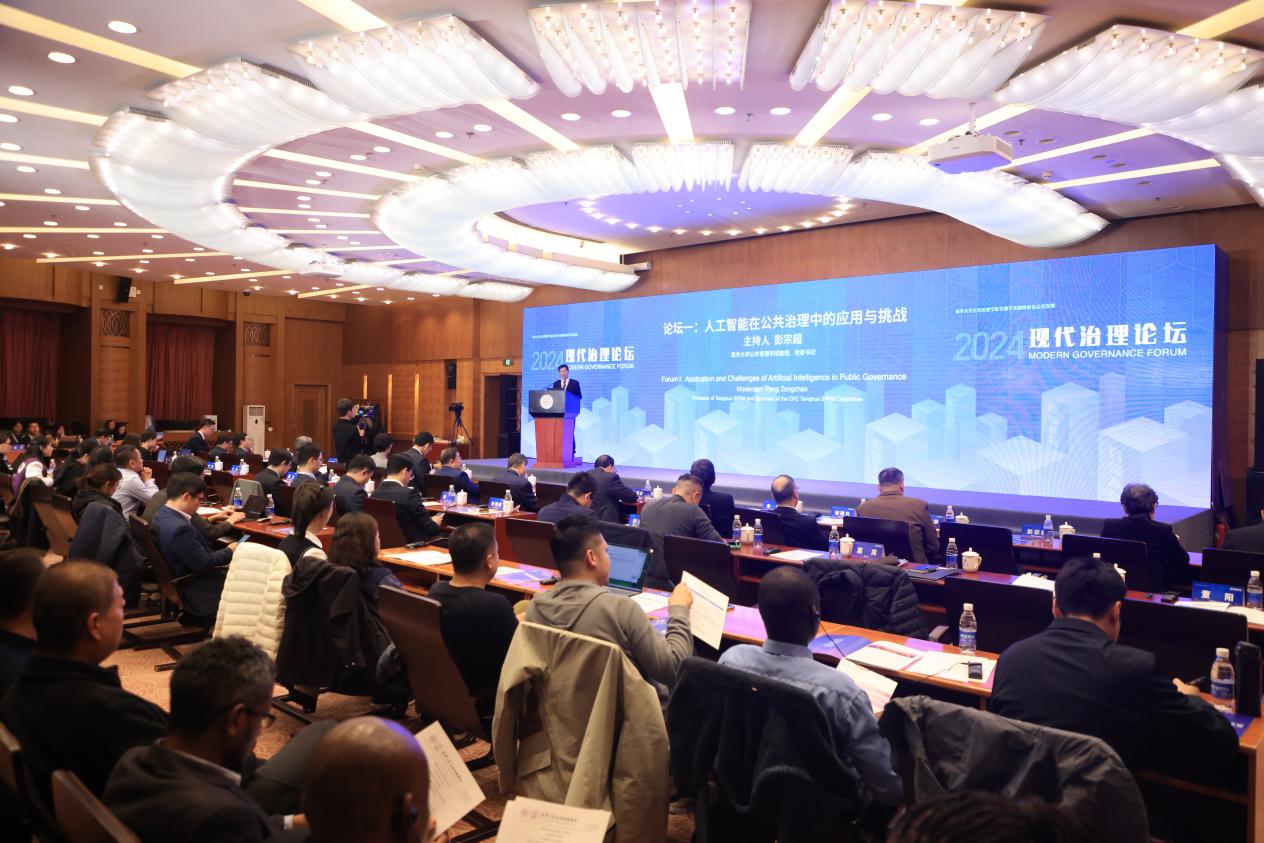
Venue of the forum
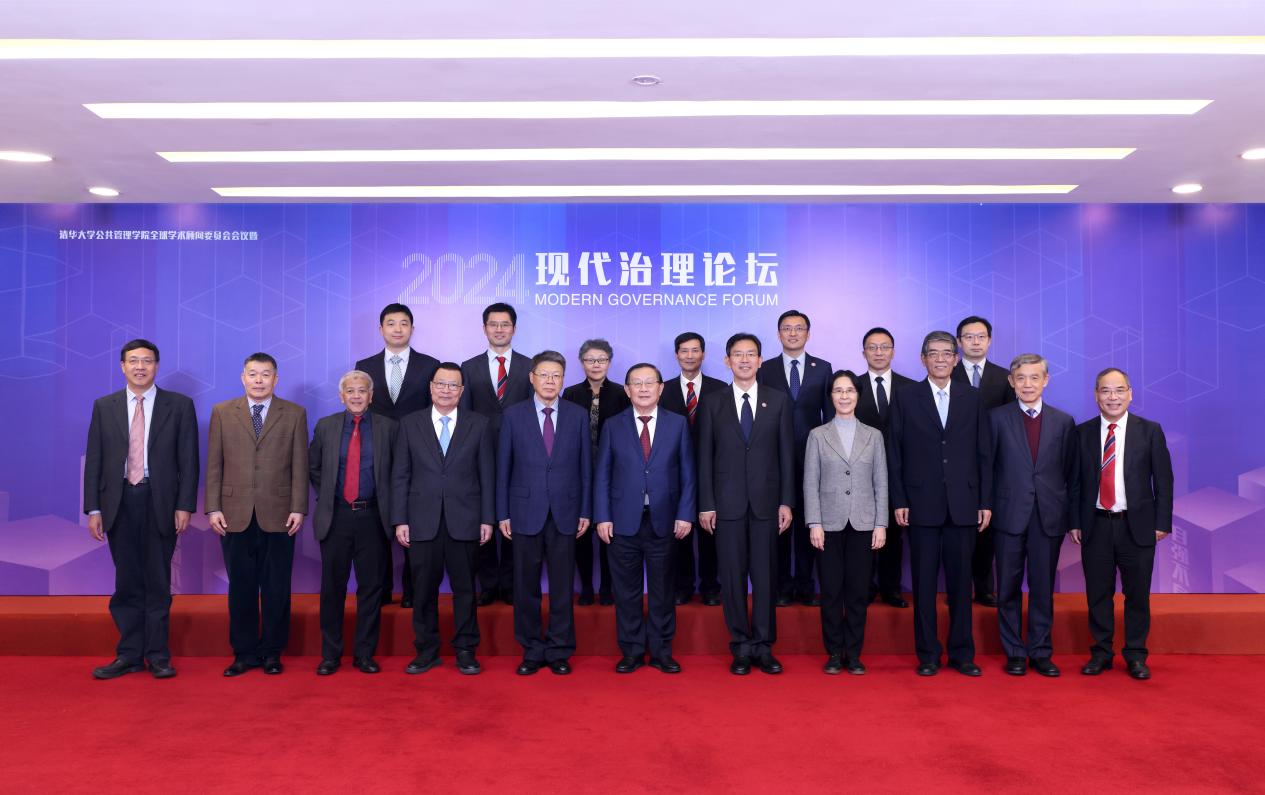
Group photo
From School of Public Policy & Management
Editor: Li Han

